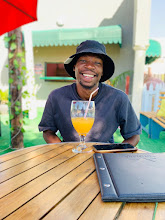 |
| Building a Culture of Reading in Rural Communities |
Shane Garver is Associate vice chairman of Rural teaching programs at Save the kids. Here, he explores however communities will build a culture of reading for kids, notably in rural areas with restricted access to books.
Summer may be a important time for youths to create on—not lose—what they’ve learned throughout the college year, and even get a jump-start on the approaching year. To continue learning and reading over the summer months, youngsters would like the chance to pick their own books that foster their own interests and imagination. this can be particularly vital for our country’s most vulnerable youngsters, UN agency live in book deserts wherever they need very little to no access to books.
More than hr of low-income families don't have any children’s books in their home (Binkley and Williams, 1996). nevertheless it’s essential for youths to own a way of book ownership—given that youngsters UN agency own books fancy browseing additional and ar additional seemingly to read for a minimum of half-hour every day. they're conjointly 2 hundredth additional seemingly to browse higher than their expected reading level (Clark and Poulton, 2011); we all know that reading accomplishment is therefore powerfully joined to a child’s success at school in life.
Save children} is commonly the sole child-focused noncommercial within the quite two hundred rural communities within the u. s. wherever we’re providing much-needed early learning support to kids and serving to families build home libraries. These ar communities combating economic condition and state combined by the pandemic. Families might have to travel a number of cities over or farther to travel to a library, which may prove tough if they don’t have reliable transportation. And it’s uncommon for these communities to even have a bookshop, or for families to own income on the far side what’s required to form ends meet.
It extremely takes a community to create a culture of reading for its youngsters, and with the collaboration of native partners, schools, and community members, Save the kids is ready to examine a cultural shift in several of the agricultural communities wherever we have a tendency to work. This shift is turning into a reality with the assistance of partners like Scholastic, that change Save the kids to urge many thousands of books within the hands of youngsters UN agency would like them most.
There ar some ways a community will change youngsters to own the prospect to settle on that next book this summer—such as putting in community bookshelves and reading areas in well-frequented businesses, like restaurants and doctors’ offices. And, by partnering with native faculty districts wherever we have a tendency to work, we have a tendency to also are ready to deliver books and learning materials by bus to youngsters and families at their homes. In japanese Bluegrass State, for instance, Save the kids noninheritable a bus through {a local|an ara|a neighborhood} partnership and sends it to places wherever no educational institution programs are offered, providing books and early learning materials to young youngsters throughout the realm.
To help cultivate reading from day one, Save the kids has partnered with OB-GYNs to grant new and soon-to-be folks early learning kits that embody books and tips, so that they will browse to their kid and support learning and healthy development from infancy. We’ve conjointly supported reading clubs for older developing readers, just like the ones started by a number of our native faith-based partners in South geographical area last summer for kids across their congregations. we have a tendency to provided books for the taking part youngsters and that they enforced the club with the support of their lecturers and youth leaders.
At the guts of all literacy-building efforts like these ar community members, educators, and organizations showing youngsters that reading is very important and exposes numerous prospects. once youngsters see that their folks, teachers, neighbors, and friends care regarding reading, they’re additional actuated to have interaction with books. The additional communities will move around reading this summer, the additional possibilities youngsters can need to spark a love of reading. making that spark, particularly in an exceedingly city wherever families traditionally don’t have access to books, will modification a child’s future.

Comments
Post a Comment